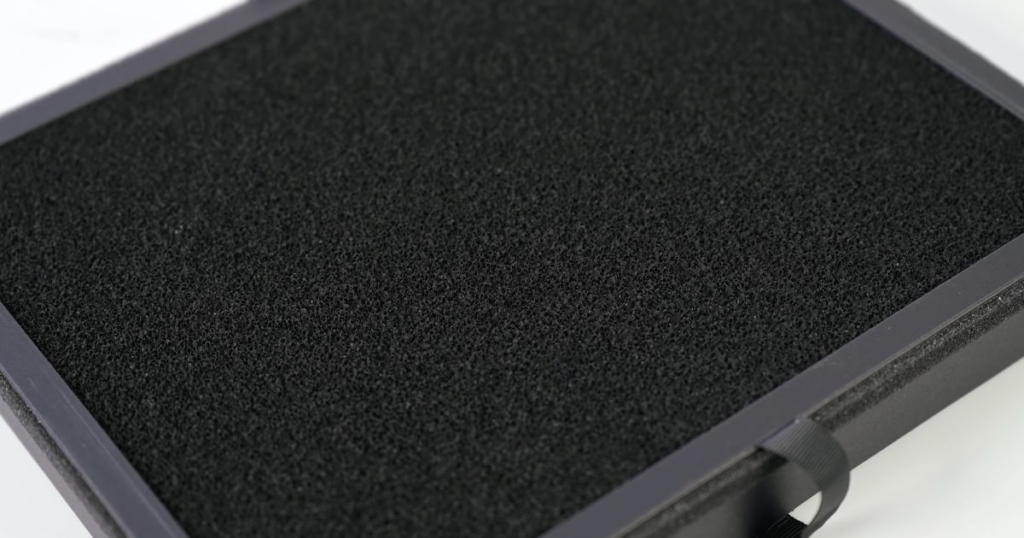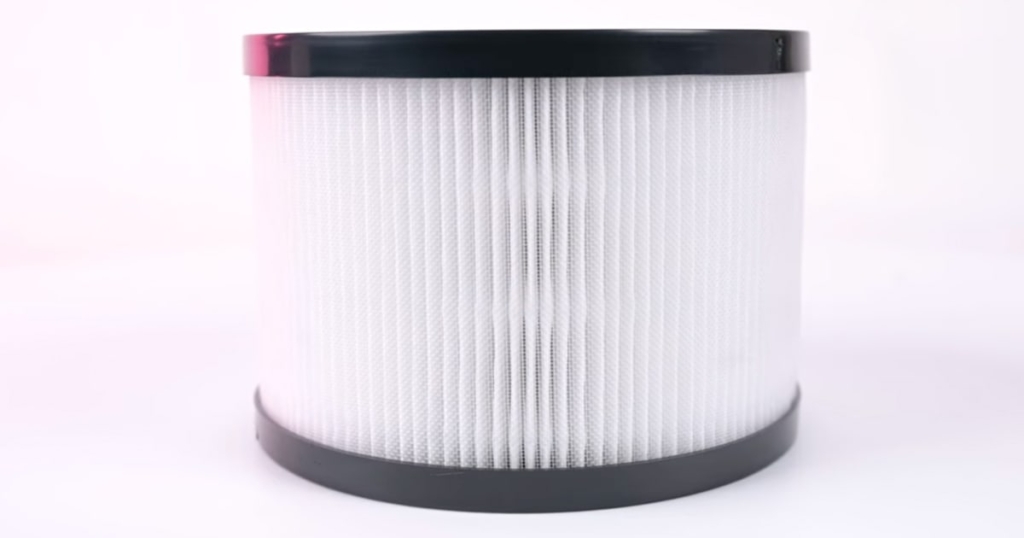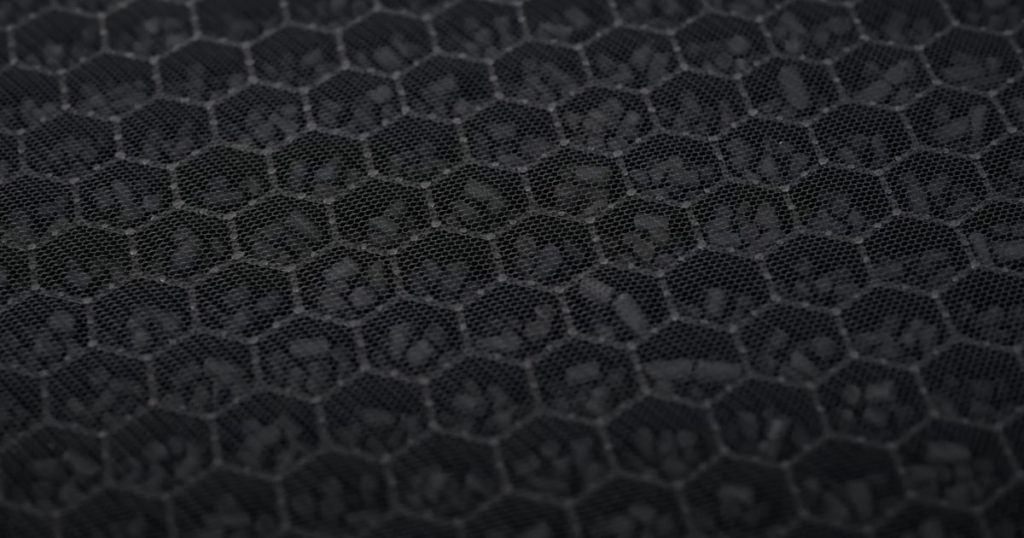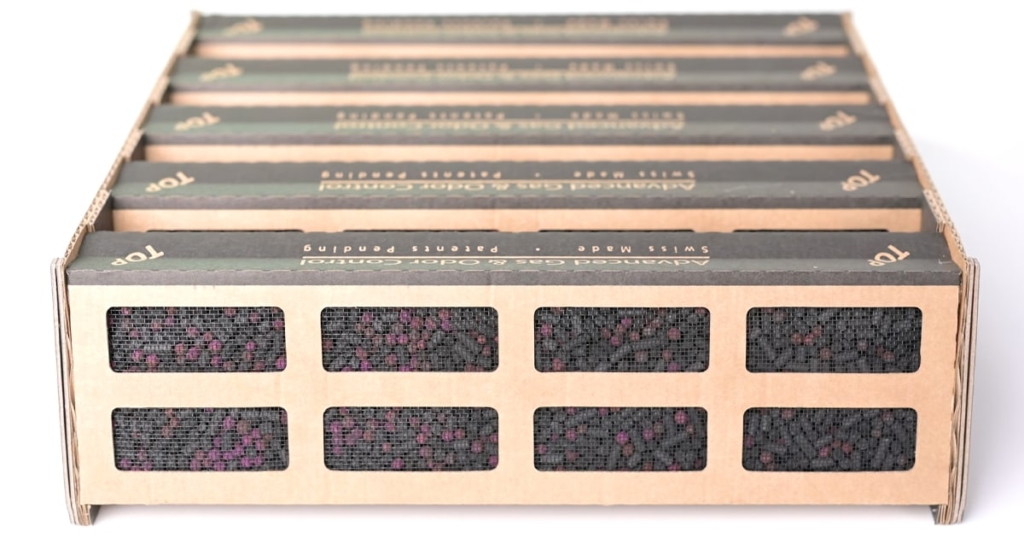We at Vacuum Wars have noticed the growing concerns about indoor air pollution and its health implications. This heightened awareness has led to a surge in demand for air purifiers, the go-to solution to improve the air quality inside our homes.
As the market gets flooded with different types of air purifiers, choosing the most effective one has never been more crucial. When we began performing air purifier reviews, we came across a common feature in many air purifiers which you may have also found: the activated carbon filter.
We were familiar with HEPA filters, but not carbon filters. So, we set out to understand what these filters do and whether they are essential for your air purifier.
Air Purifiers, Filtration and Carbon Filters
The fundamental purpose of an air purifier is to remove various pollutants from our indoor environment. These pollutants may be particulate matter (primarily consisting of dust, pollen, and dander) or gaseous pollutants (like volatile organic compounds, carbon monoxide, and nitrogen dioxide).

While most air purifiers are designed to target both of these types of pollutants, activated carbon filters particularly come into play when dealing with airborne odors and gaseous pollutants.
RELATED: PM2.5 Sensors in Air Purifiers
Activated carbon filters are made of a specialized form of carbon that has undergone a process to increase its absorbent properties. The resulting material has a vast network of tiny pores that provide a large surface area for capturing and trapping gaseous pollutants.

This has made activated carbon filters an ideal choice for eliminating tobacco smoke, cooking odors, and other harmful gases from the surrounding air. But is this feature indispensable, or can we do without an activated carbon filter in our air purifiers?
In this article, we will examine the various factors that influence the need for activated carbon filters in air purifiers. And, we will also discuss the types of environments that benefit from these specialized filters most.
Understanding Activated Carbon Filters: A Science Lesson
Before we dive into whether or not you need an activated carbon filter in your air purifier, it’s essential to grasp the basics of how they work. Activated carbon filters are made from carbon-containing materials like wood, coconut shells, coal, and peat.
Tip: Be sure to follow the manufacturer’s recommendations on the replacement frequency for each filter to ensure optimal performance of your air purifier.
These materials undergo a two-step process involving high-temperature heat treatment and chemical activation using acids or bases. This process alters the carbon’s structure, creating an intricate network of tiny pores with a vast surface area relative to their size – think thousands of square feet per gram!
When the air moves through the activated carbon filter, pollutants like gases, odors, and volatile organic compounds (VOCs) are attracted to and held within its porous structure through a process called adsorption.

It’s this characteristic that makes activated carbon filters a perfect partner for HEPA filters in effectively removing airborne particles and gaseous pollutants from indoor air.
Is an Activated Carbon Filter Essential in Your Air Purifier?
The necessity of an activated carbon filter in your air purifier depends on multiple factors, including the local air quality where you live and the types of pollutants you are most concerned with.
Here are some scenarios in which you should consider an air purifier with an activated carbon filter:
- Urban Living: City dwellers are often exposed to higher levels of gaseous pollutants due to vehicle emissions, manufacturing facilities, and other sources. An activated carbon filter can help reduce these contaminants, making it a wise choice for urban residents.
- Smoke and Odors: If you live in a household with smokers, an air purifier with an activated carbon filter is beneficial as it can effectively remove tobacco smoke and unpleasant odors. Likewise, households fond of cooking (especially frying) will find these filters useful in neutralizing lingering cooking smells.
- Chemically Sensitive Individuals: People who experience allergies or are sensitive to VOCs and airborne chemicals released by cleaning products, adhesives, and building materials can benefit from an air purifier with an activated carbon filter. These filters capture chemical fumes and provide relief to susceptible individuals.
- Pet Owners: Activated carbon filters are handy for pet owners as they can help reduce pet-related odors from dander and accidents, making both you and your furry friend happier.
However, if your primary concern is particle-based pollutants like dust, pollen, and pet dander, and you are neither sensitive to VOCs nor bothered by everyday odors, an air purifier high-quality HEPA filter might suffice for your air purification needs.
Maintaining and Replacing Activated Carbon Filters
Just like other air purifier filters, activated carbon filters have a limited life span. Over time, their porous structure becomes saturated with trapped pollutants, reducing their effectiveness in capturing and neutralizing gaseous pollutants and odors.
Typically, activated carbon filters should be checked every 3-6 months and replaced as needed, depending on your usage and indoor air quality.

Some air purifiers advertise washable activated carbon filters that can be rinsed and reused. However, washing these filters only helps remove dust and large particles, not the adsorbed gases. So, even washable activated carbon filters need replacement after a certain period.
Enhanced Filtration Technologies: Activated Carbon and Beyond
Air purifiers with activated carbon filters are highly effective, but technological innovations have led to the development of advanced filtration systems that can target specific types of pollution with greater efficiency. Some of these technologies include:
- Photocatalytic oxidation (PCO): PCO technology uses ultraviolet (UV) light to activate a chemical catalyst, breaking down pollutants into simpler, less harmful substances. This process can help eliminate a variety of indoor air contaminants, including VOCs, bacteria, and viruses. Molekule uses this technology in their air purifiers.
- Molecular filtration: A combination of cutting-edge filtration media designed to capture and neutralize certain pollutants (like formaldehyde) at the molecular level. These filters use impregnated-activated carbon with special adsorption additives to provide superior performance.
Depending on your unique needs, an air purifier with one (or more) of these advanced filtration technologies might be worth considering prior to making a purchase.
Balancing Needs and Cost
To wrap up, incorporating an activated carbon filter in your air purifier is based on factors like local air quality, individual sensitivities, and particular concerns regarding gaseous pollutants and odors.
Consider your living environment and needs carefully before making your investment in an air purifier. Research the available options and choose a device that includes an activated carbon filter if you feel it would greatly benefit the air you breathe daily.
Ultimately, it all boils down to striking a balance between your personal circumstances the air purifier’s capabilities in maintaining your indoor air quality at a healthy level and, of course price.
